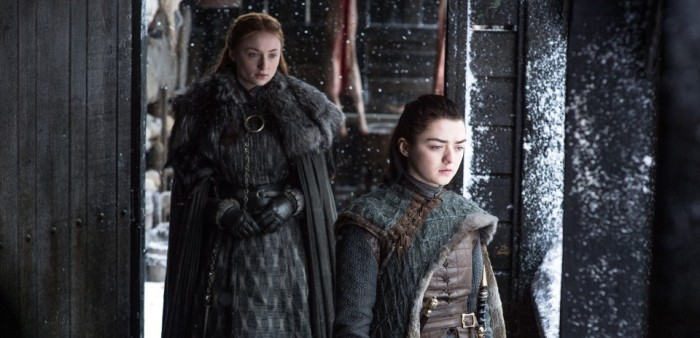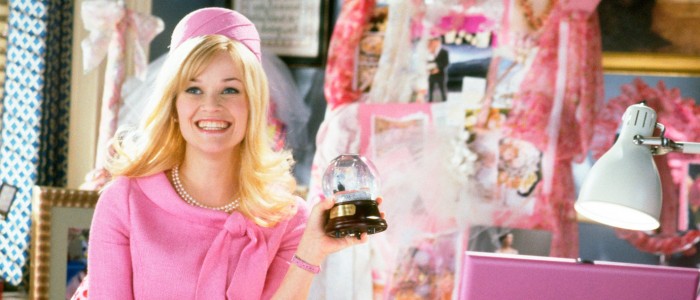What James Cameron Gets Wrong About Wonder Woman And 'Strong' Female Characters
On Thursday, director James Cameron — the man behind female icons such as Sarah Connor in the Terminator movies, Ripley in Aliens, and erm, Neytiri in Avatar — struck an illogical blow against the female-led movie of the summer: Wonder Woman.
Instead of being a watershed moment in Hollywood, Cameron accused Wonder Woman of being a "step backwards" for women compared to his beloved Ripley. It was an incredibly reductive way of viewing Wonder Woman and its cultural impact — and his comments naturally caused such an uproar that Wonder Woman director Patty Jenkins stepped in to tell him exactly how he was wrong.
Not that Jenkins needs any help, but I'm also here to break down exactly why it's not Wonder Woman that is woefully "backwards" in its views of women, but James Cameron.
What Cameron Said
Cameron told The Guardian that he didn't understand the "self-congratulatory back-patting" that Hollywood has been doing over the success of Wonder Woman. "She's an objectified icon, and it's just male Hollywood doing the same old thing!" said Cameron, the director who gave Zoe Saldana's character in Avatar breasts even though her alien race aren't placental mammals.
He continued:
"I'm not saying I didn't like the movie but, to me, it's a step backwards. Sarah Connor was not a beauty icon. She was strong, she was troubled, she was a terrible mother, and she earned the respect of the audience through pure grit. And to me, [the benefit of characters like Sarah] is so obvious. I mean, half the audience is female!"
Oy vey. Let me unpack the ways in which Cameron's statements misunderstand what makes a worthwhile female hero.
Throwing Away Old Notions of the 'Strong Female Character'
There's an idea that to be a "strong female character," a woman has to be mentally and physically powerful, smart, solitary, and a general "badass." It's an archetype that has been ingrained in us with every female icon from Sarah Connor, to Ripley, to Game of Thrones' Arya Stark. And it's nonsense.
This archetype asks that for women to be considered equal to male heroes, they have to embody these traditionally male qualities — of brute strength and resilience — while giving up anything "feminine" that could make them weaker: compassion, empathy, beauty, or vanity. There's a reason that we see tomboys as superior to "most girls" — in shedding their feminine qualities, they put themselves on an equal playing field with men, on men's terms. It's a patronizing way of elevating women we deem "worthy" above all other women, because only a select few can really be one of the boys. Not only does it isolate these female heroes — it's why it's common to see a lone female hero in a team of male heroes (*cough* Avengers, Hunger Games, Justice League, The Smurfs), because the concept of various women being worthy of fighting alongside men is alien to most men.
But male characters aren't held on nearly the same level of scrutiny as female heroes are. In a 2013 essay decrying the label of "strong" for female characters, Sophia McDougall wrote, "Sherlock Holmes gets to be brilliant, solitary, abrasive, Bohemian, whimsical, brave, sad, manipulative, neurotic, vain, untidy, fastidious, artistic, courteous, rude, a polymath genius. Female characters get to be Strong."
It's insulting to whittle female heroes down to one personality type. I love Sarah Connor to death, and I will acknowledge that more than just being tough and kick-ass, she has flaws and complexities. But the way we venerate her falls in line with that reductive reasoning that only women who are hard and brutal are worthy of our adoration.
Jenkins said it well in her response to Cameron, writing on Twitter, "But if women have to be always be hard, tough, and troubled to be strong, and we aren't free to be multidimensional or celebrate an icon of women everywhere, then we haven't come very far have we... There is no right and wrong kind of powerful woman."
— Patty Jenkins (@PattyJenks) August 25, 2017
Like Liv Tyler said of her portrayal of Arwen in Lord of the Rings, "you don't have to put a sword in a woman's hand to make her seem tough."
What Women Want
One of my favorite female heroes is Elle Woods from Legally Blonde, by no means a "strong female character" by Cameron's definition. She couldn't throw a punch lest she break a nail, and you see her crying within the first 5 minutes of the film. But she proves by the end of the day that it isn't conforming to what society expects successful or strong women should be that helps her win the case, but her own "feminine" instincts — that of compassion, and the simple and finite rules of hair care.
So too do I defend Sansa Stark, who is unjustly pitted against her more masculine assassin sister, Arya. She cries, she makes mistakes, she listens to bad advice, and she gets punished for it — over and over. And for what? Because she does not embody what we think of as a "strong female character"?
So I want to change the definition of a "strong female character." I want us to validate "complex women." Rather than writing a female character that falls in line with the "not a damsel in distress, but a princess who knows kung fu" archetype, I want well-written women. At risk of revealing myself as too much of a fangirl, I want to point out this excellent quote that was circulating on Tumblr a few years ago:
"Screw writing 'strong' women. Write interesting women. Write well-rounded women. Write complicated women. Write a woman who kicks ass, write a woman who cowers in a corner. Write a woman who's desperate for a husband. Write a woman who doesn't need a man. Write women who cry, women who rant, women who are shy, women who don't take no shit, women who need validation and women who don't care what anybody thinks. THEY ARE ALL OKAY, and all those things could exist in THE SAME WOMAN."
Women contain multitudes. They don't have to be elevated above one another, or fight the good fight in isolation. Sisterhood is as an important concept as getting just one female character right. More than one complex female character can be in the same room as the other.
These women exist. We see her in Sailor Moon, a tiara-throwing teenage girl who cries when she scrapes her knee. We see her in Buffy, who just wants to save the world and go party with the Scoobies. And we see her in Diana of Themyscira, who can charge down No Man's Land with her perfect hair — braided by her loving Amazonian sisters — billowing behind her as she saves an unremarkable village.
Wonder Woman may wield a sword, but the most important thing she wields is her compassion and hope for humanity. She doesn't need grit to prove that she's an icon deserving of that title.


